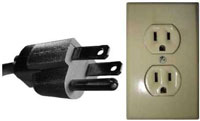giovedì 18 marzo 2010
01:57 | Pubblicato da
Ente del Turismo della Giordania JORDAN TOURISM BOARD |
Modifica post

Le proprietà terapeutiche ed estetiche dei prodotti estratti dal Mar Morto giordano stanno finalmente ottenendo il meritato successo con un aumento sostanziale di esportazioni.
Il lato giordano del Mar Morto vede infatti, al contrario del lato israeliano (più roccioso), una presenza fortissima di fanghi che, dovuto alle correnti interne, risultano essere decisamente più ricchi di principi attivi fondamentali per la cura e la prevenzioni di problemi quali acne, eczema, psoriasi.
Dal Jordan Times
By Randa Habib
Agence France-Presse
AMMAN - Jordan is vying to break Israel’s dominance of a major cosmetics industry based on Dead Sea minerals famous for their therapeutic qualities but, despite an abundance of mud, still has far to go.
Two decades after production first started, the industry on the Jordanian side still has a turnover of just $30 million a year and accounts for only 0.5 per cent of the Kingdom’s annual exports of around $6 billion.
Israel’s Ahava, which markets its moisturising lotions and a range of other Dead Sea products in 30 countries, alone earns more than $150 million a year, five times more than all of the Jordanian companies.
Some 50 Jordanian firms produce Dead Sea cosmetics, but only 15 have a global presence in markets across the Middle East, Asia, Europe and the United States.
“The Kingdom is rich in materials and its Dead Sea shoreline is muddy, in contrast to Israel’s rocky shoreline,” said Osama Qutaishat, head of Jordan’s association of manufacturers of Dead Sea products and owner of one of its largest cosmetics companies.
Israel’s rocky shoreline has meant it has even imported raw materials from Jordan since the two countries signed a peace treaty in 1994.
“Many studies have shown that Dead Sea minerals including potassium, magnesium, silicon, sodium and calcium are effective in treating and preventing illnesses like psoriasis, eczema and acne,” Qutaishat told AFP.
Landlocked between Jordan, Israel and the occupied West Bank, the Dead Sea is the world’s lowest and saltiest body of water. Legend says the Queen of Sheba believed in its healing powers, and Egypt’s Cleopatra built a spa on its shores.
Lack of cooperation and the small size of the companies in the sector are the major problems of the industry, said Yarub Qudah, head of the Jordan Enterprise Development Corporation.
“Their capabilities are limited. One of the solutions is systemised cooperation between the companies and the establishment of a consortium for exports,” he added.
“If the companies work properly, exports could reach $100-120 million annually in five years,” he said, adding that if a plan to transform Dead Sea products into clinical products bears fruit, prices could jump “four or five times”.
Poor quality output by some firms has also been to blame, giving Jordanian products a bad name, the owners of some of the largest companies said.
Both Israel and Jordan are exploiting the Dead Sea tourist trade, with luxury hotels on either shore.
Both have also set up massive evaporation pools that harvest Dead Sea minerals like potash, or potassium carbonate, used to produce soap, glass, baking soda and fertilisers.
But the Dead Sea, so named because virtually no life can tolerate its heavily salty waters, may be facing another kind of death - the sea’s surface level is plunging by a metre a year.
For centuries, the sea’s delicate balance was maintained by the Jordan River, its only year-round water source. But in recent decades Israel and Jordan have been diverting its waters into large irrigation projects.
The Dead Sea shoreline has receded by more than a kilometre in some places and the world-famous body of water could dry out completely by 2050, according to some calculations.
Etichette:
acne,
eczema,
fanghi,
fango,
giordania,
mar morto,
prodotti mar morto,
psoriasi,
sale,
sali




